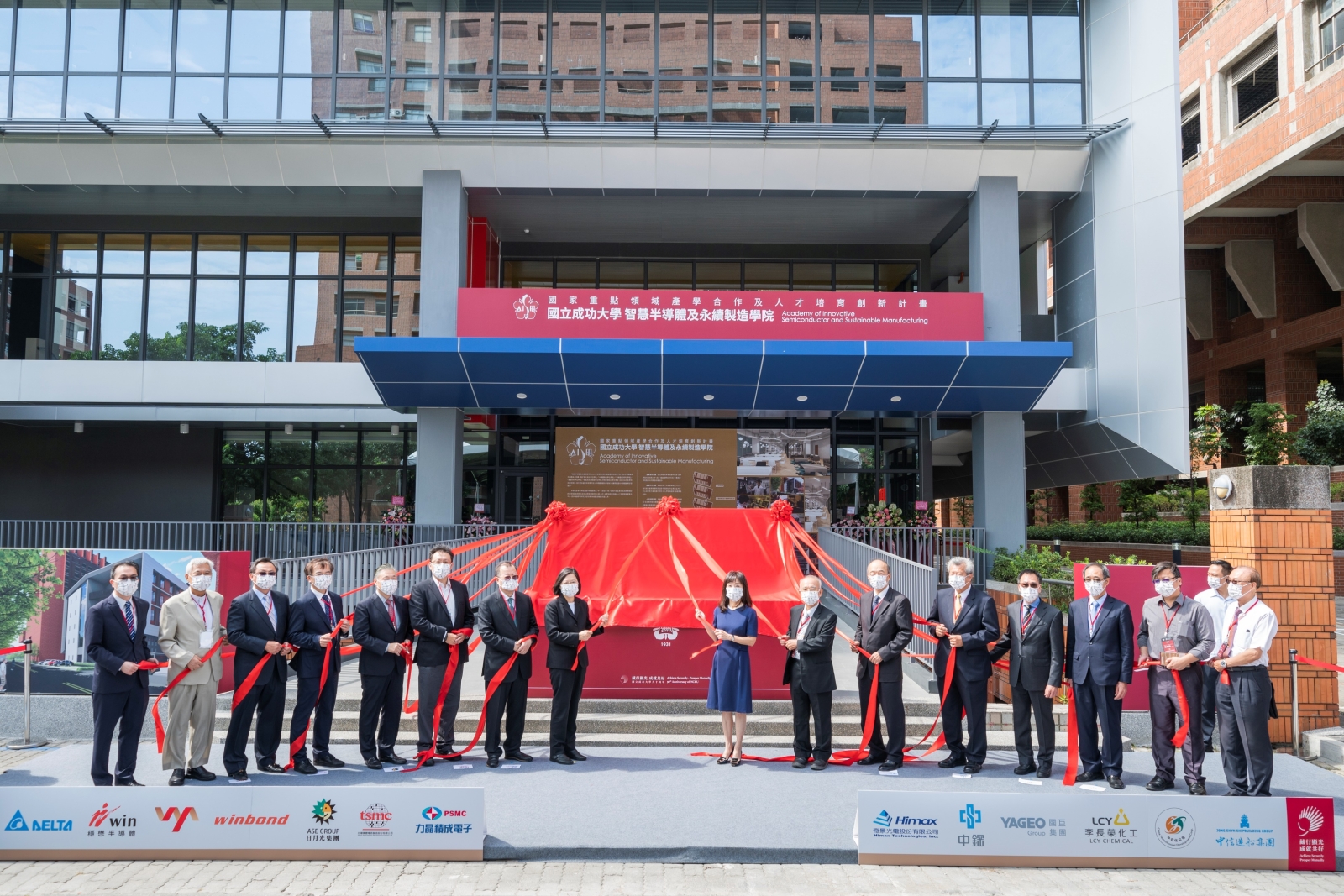Innovative Semiconductor & Sustainable Manufacturing
|
NCKU ranked #1 in Taiwan and 33rd Worldwide in THE Impact Rankings (2022) |
|
NCKU excelled particularly in SDG 7 (affordable and clean energy), ranked 8th, and SDG 9 (industry, innovation, and infrastructure), fifth globally. In 2022, NCKU has proved itself as a top-performing school of USR and has been ranked highest among Taiwan’s universities in the THE Impact Rankings for three years consecutively.
|
#1 |
NCKU ranked first in the Global Vision Magazine Survey (2025) on Best University for Employability in Taiwan, 11 years in a row. |
With more than 200,000 living alumni, NCKU graduates have reached various notable and influential positions in business, politics, and academics. NCKU has been affiliated with 1 Nobel laureate, 15 Academia Sinica academicians, and many CEOs of listed companies in Taiwan and around the world.
|
NCKU AISSM, the 1st purpose-built semiconductor academy launched in Taiwan |
|
Addressing the nation’s high-tech talent demand and the imperative for advancing semiconductor technology during the AI era, NCKU is the first university that launched a graduate school with semiconductor concentrations, which is named the Academy of Innovative Semiconductor and Sustainable Manufacturing (AISSM) in 2021.
Connections with top universities in the US, Japan, the Czech Republic, Germany, Lithuania, Latvia, and India
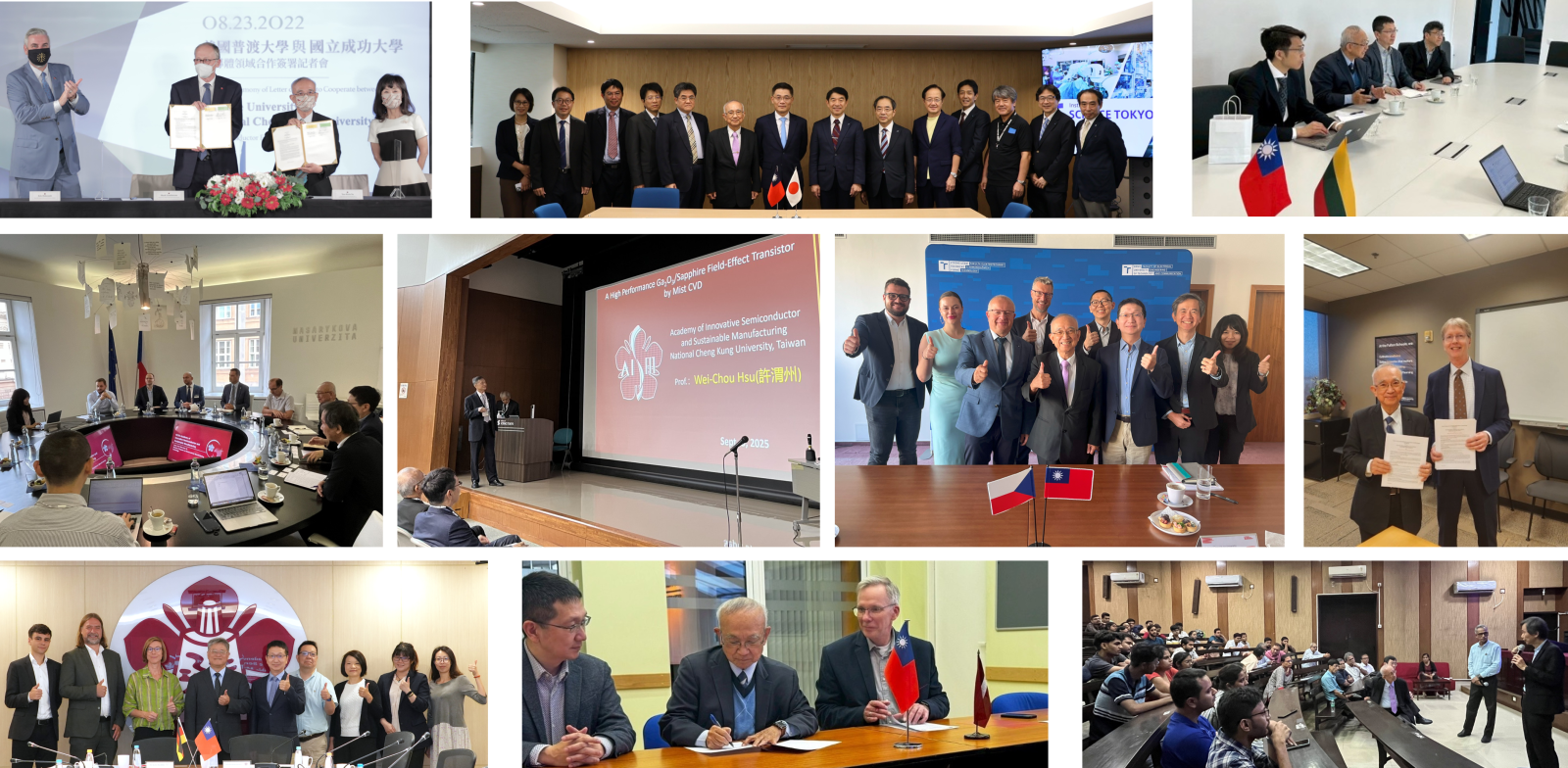
Since 2022, AISSM has established strong connection with leading educational and research institutions around the world, including Purdue University, Arizona State University, Northern Arizona University, Institute of Science Tokyo, Czech Technical University in Prague, Charles University, Brno University of Technology, Masaryk University, TU Dresden, Taiwan and Lithuania Center for Semiconductor and Materials Science, Taiwan and Baltic States Research Center on Physics, IITGN, and IIT BHU.
19 leading companies throughout the semiconductors supply chain are on board in the AISSM industry alliance, the most among the top 5 semiconductor academies in Taiwan
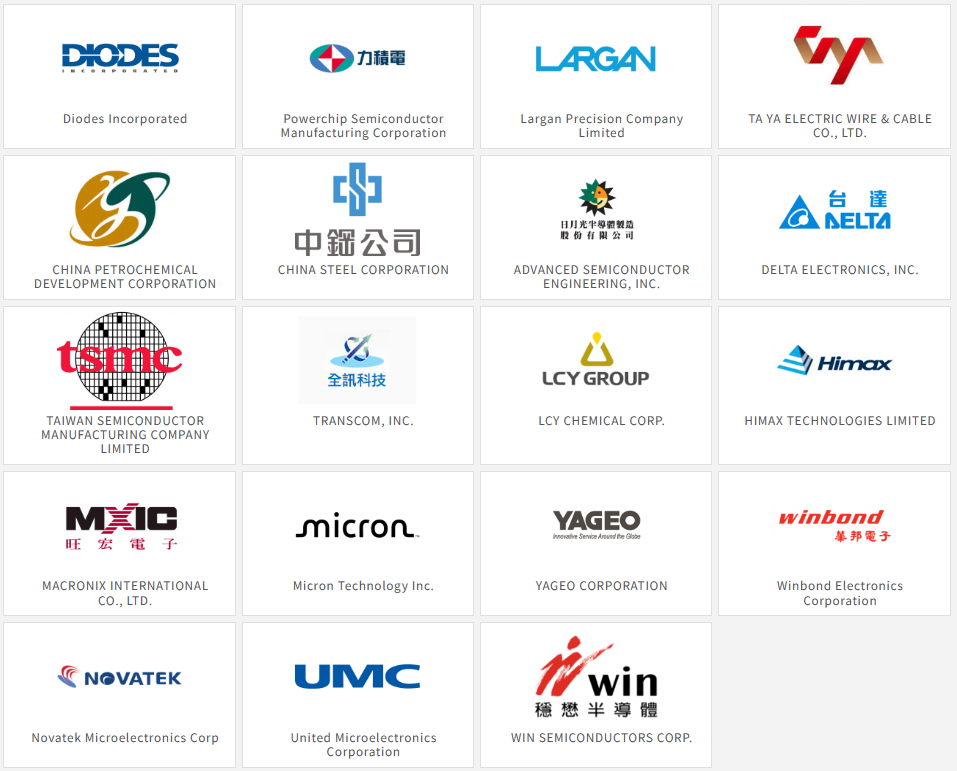
The AISSM industry partners support more than 100 joint development projects hosted by the Academy's faculty members. Eight have established their joint research centers on the NCKU campus to facilitate direct investment for focused research output and talent training. Other direct and close interactions include CEOs' mentorship seminars, industry experts providing courses with credentials, and industry awareness and readiness events on campus throughout the year.
5 MS and PhD programs in Critical Technology equipped with
core competency in Artificial Intelligence and Sustainability

Built on NCKU’s top-notch research foundation in science and engineering, AISSM has strived to align the university-based R&D work closer to industry needs by allowing greater flexibility in academic infrastructures such as faculty hiring of industry experts, budgeting, research, and training formats. The five degree programs are Integrated Circuit Design, Semiconductor Manufacturing Technology, Semiconductor Packaging and Testing, Key Materials, and Smart and Sustainable Manufacturing, covering the whole spectrum of the semiconductor industry, with a core value on “data-driven & energy-sensitive” competency to help students excel in the highly competitive semiconductor industry. Over 120 student spots are open to domestic and international students each year.
Research Topics (selected)
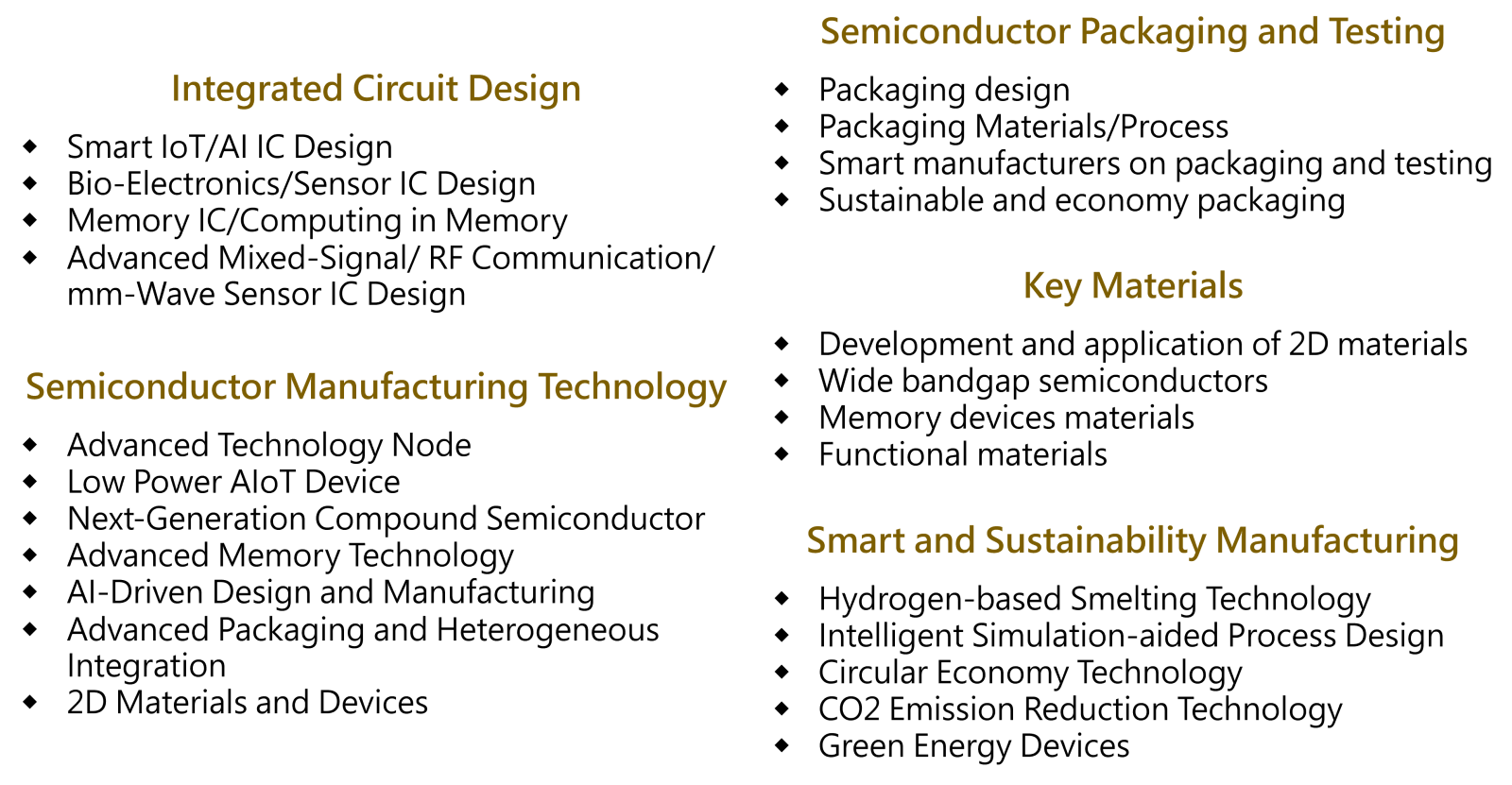
Faculty/program directors and advisors with most current students of AISSM
Integrated Circuit Design
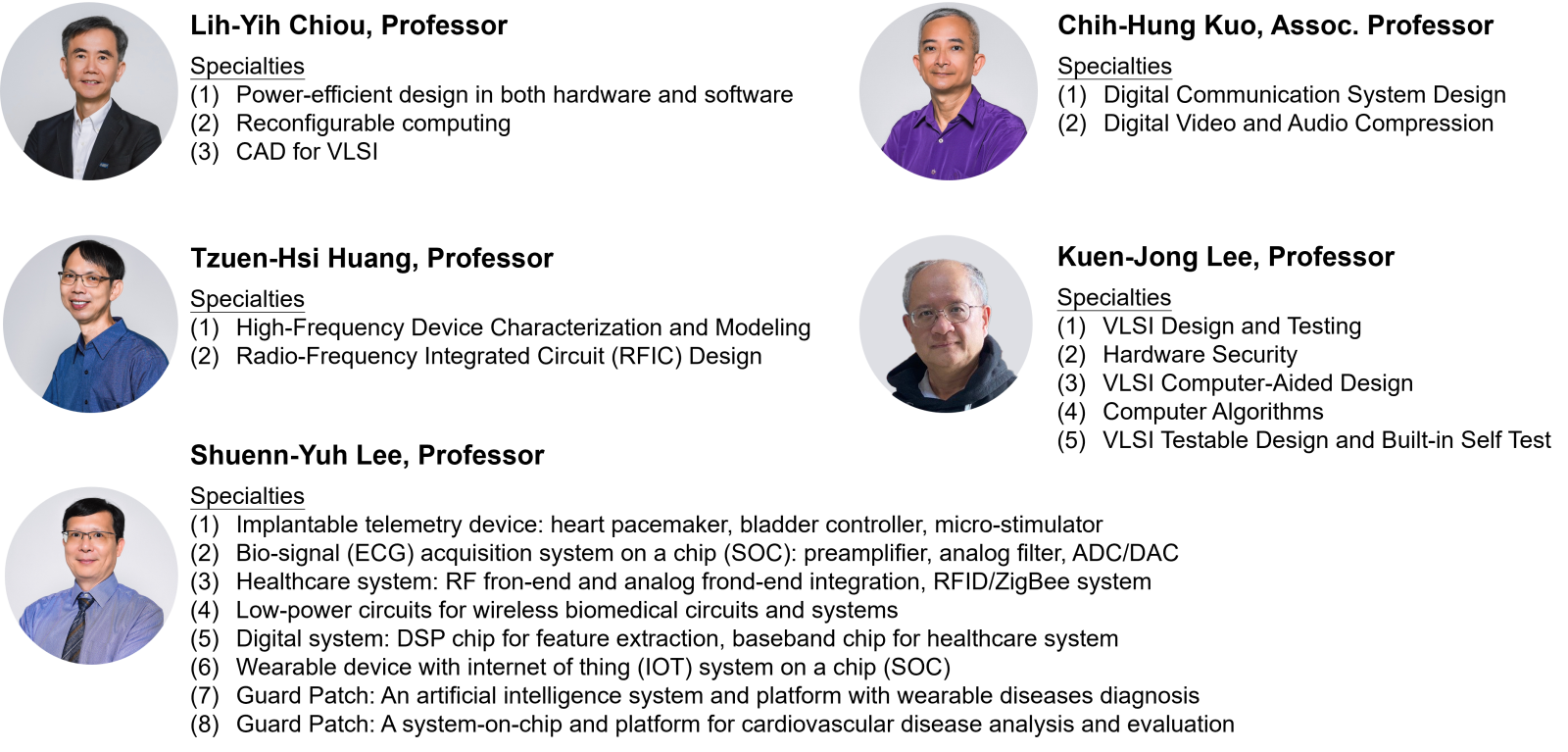
Full list Curriculum Research NCKU!
Semiconductor Manufacturing Technology
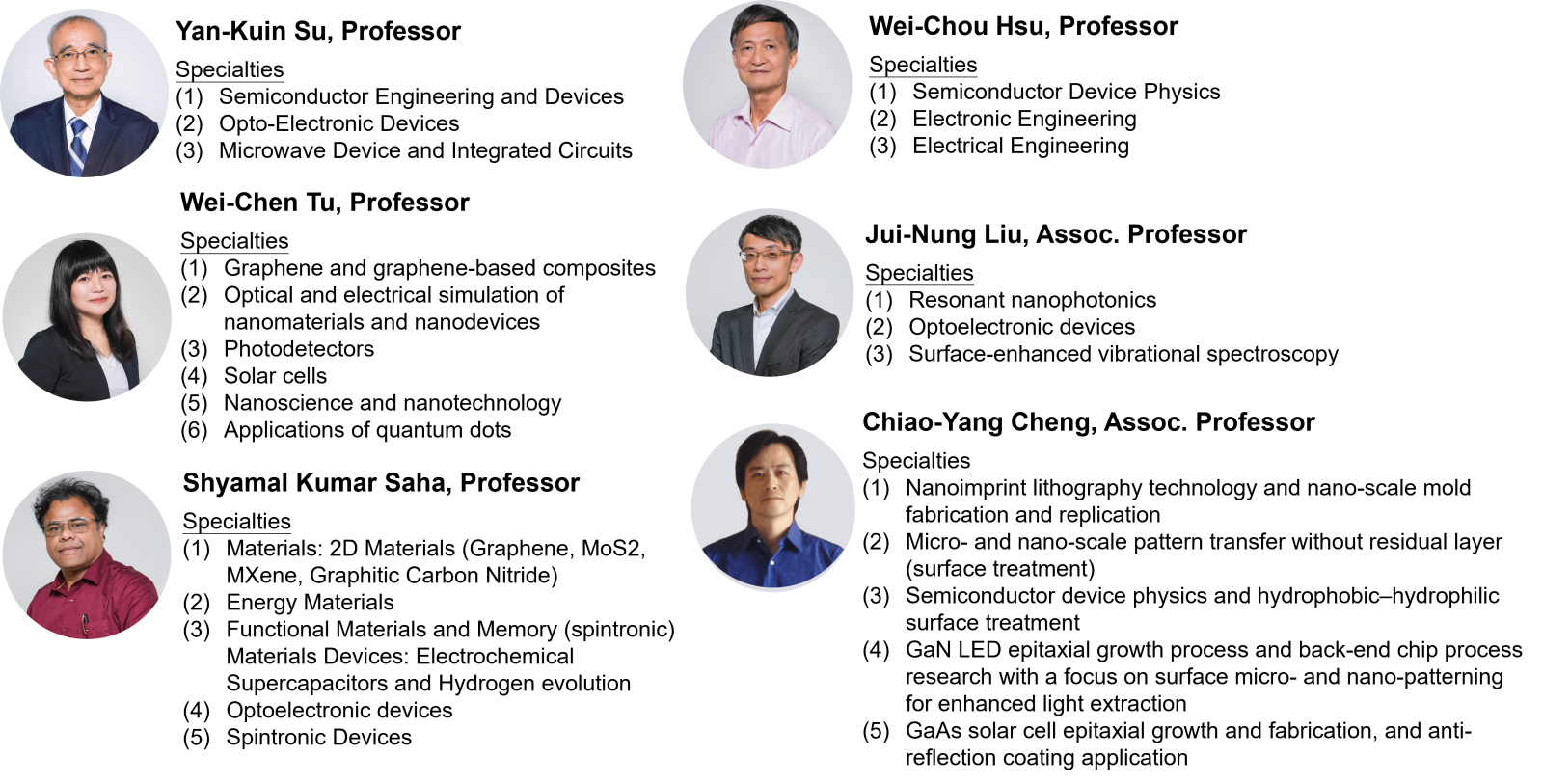
Full list Curriculum Research NCKU!
Semiconductor Packaging and Testing
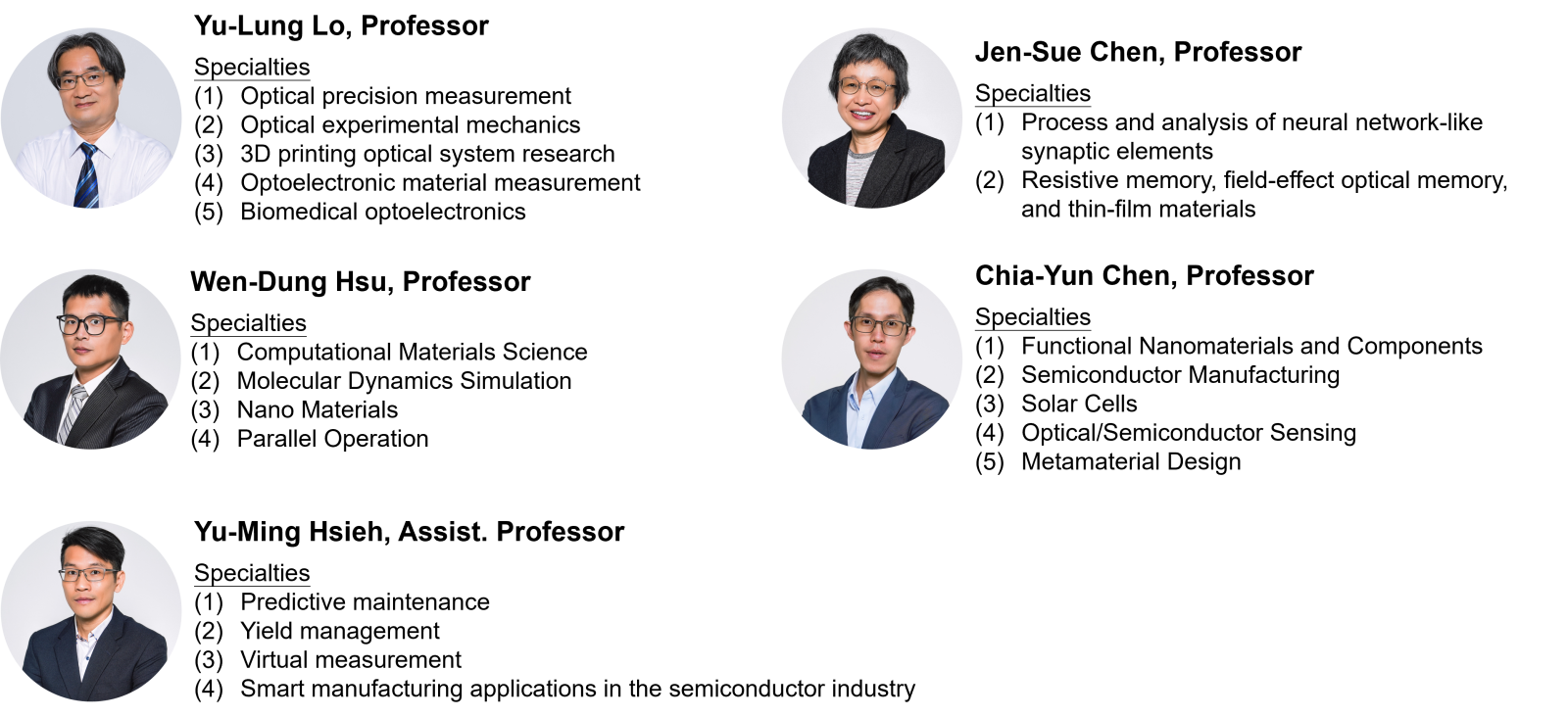
Full list Curriculum Research NCKU!
Key Materials
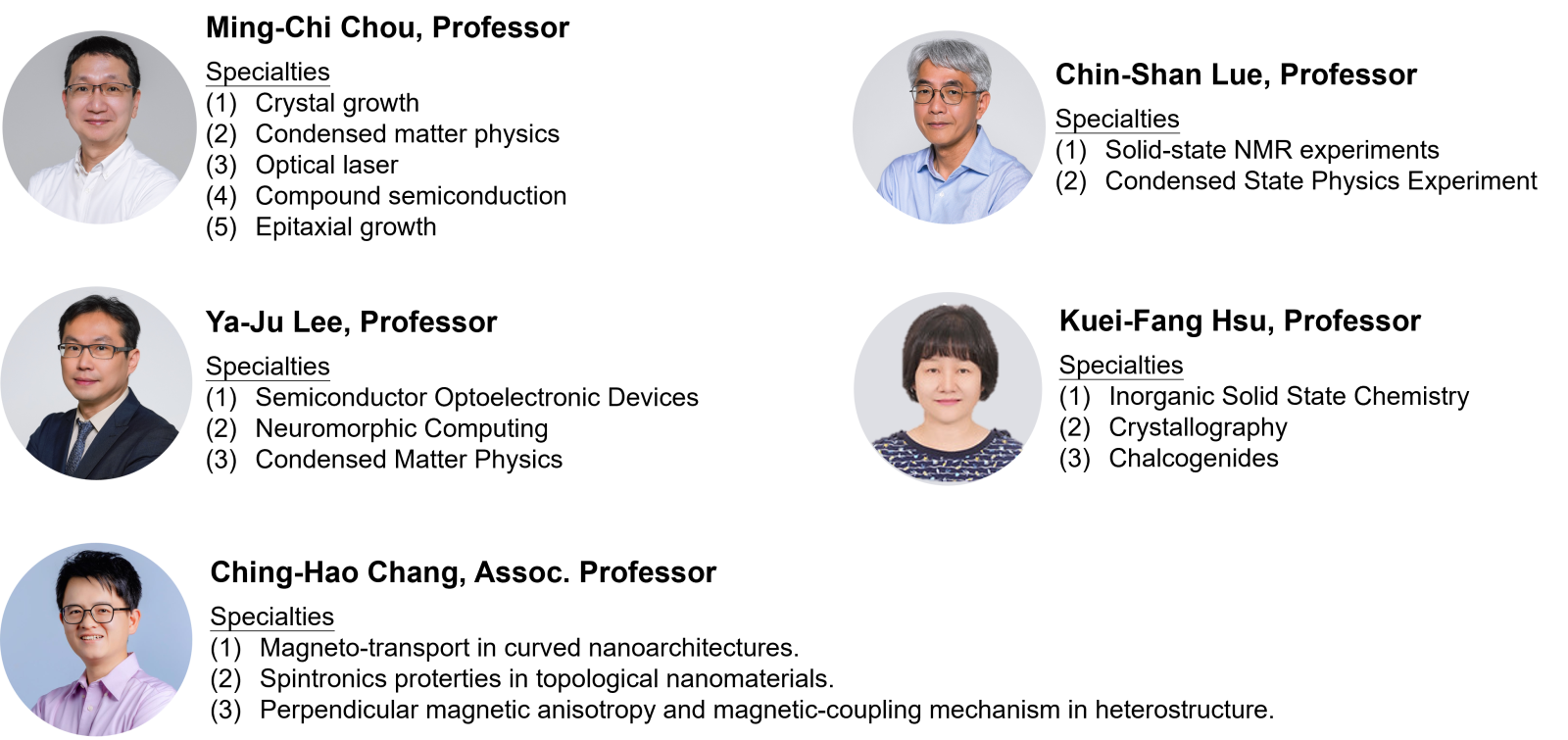
Full list Curriculum Research NCKU!
Smart and Sustainability Manufacturing
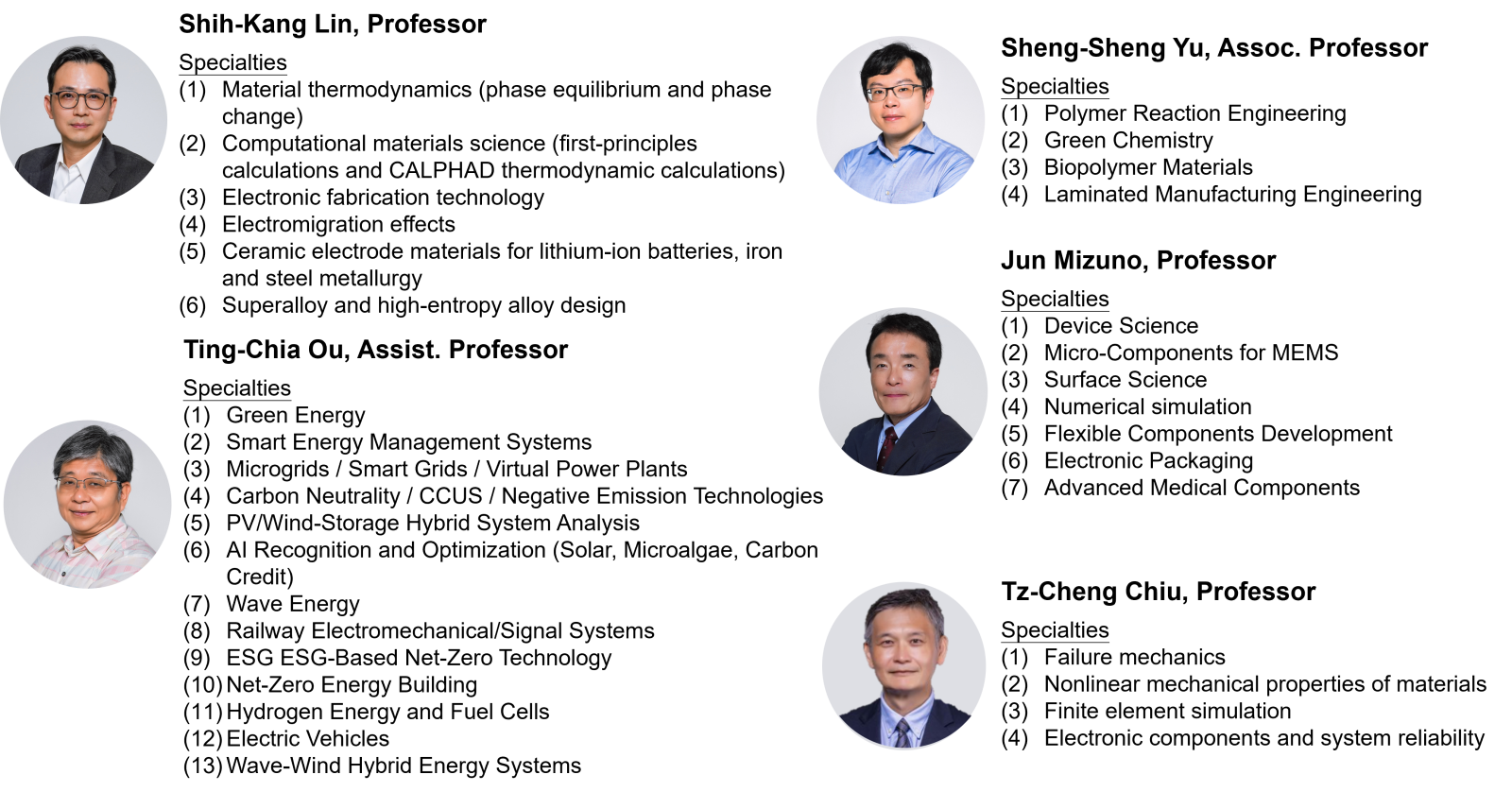
Join us in the semiconductor expert community to advance to the next level of your career
AISSM welcomes students from the faculty of science, engineering, or electrical engineering to pursue their master’s or PhD degrees. Applicable disciplines include but are not limited to electrical engineering, materials science, photonics, chemical engineering, physics, mechanical engineering, information engineering, and environmental engineering. Admissions are open twice a year, one for the fall entry in December and the other for the spring entry in July.


